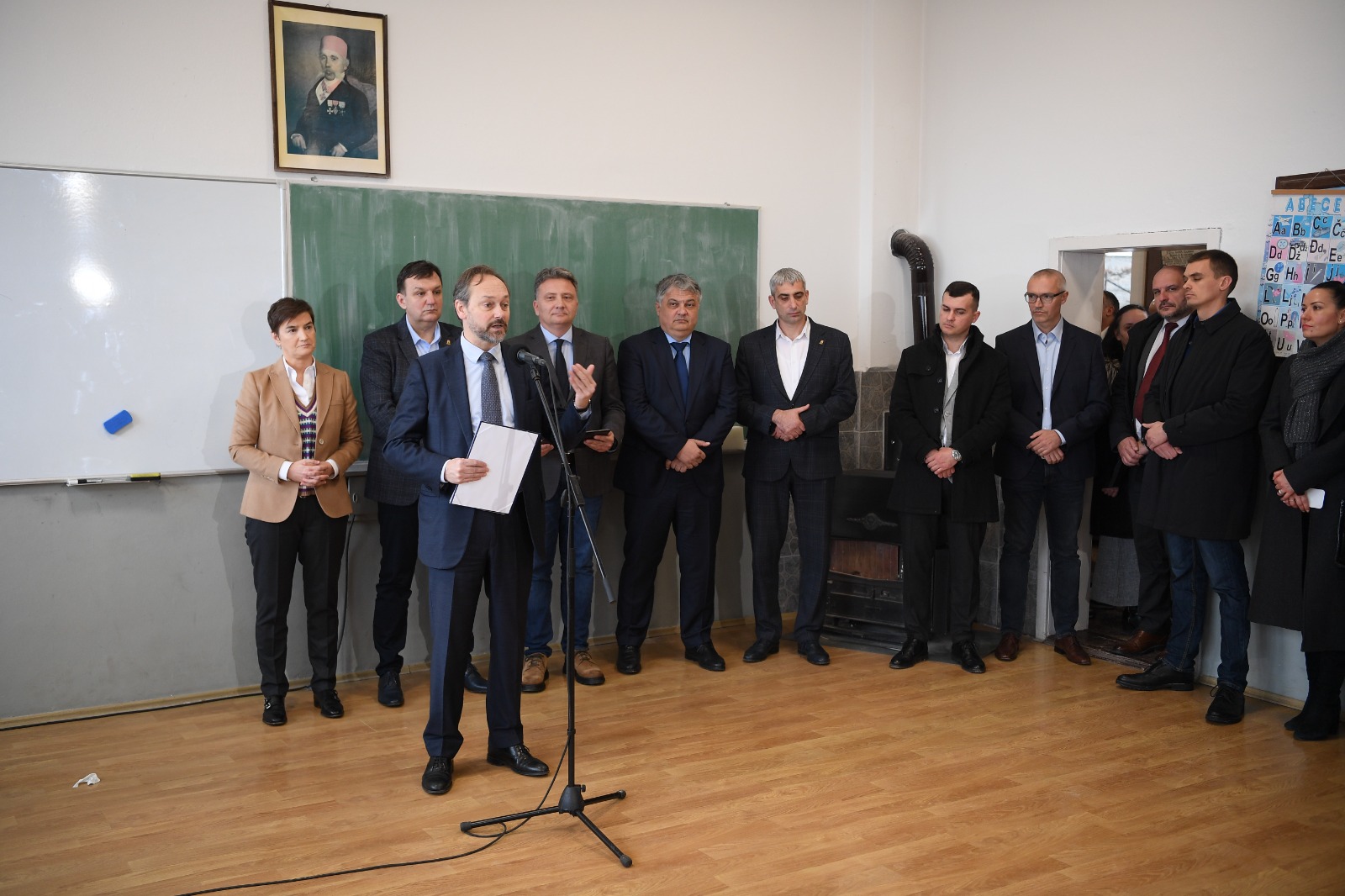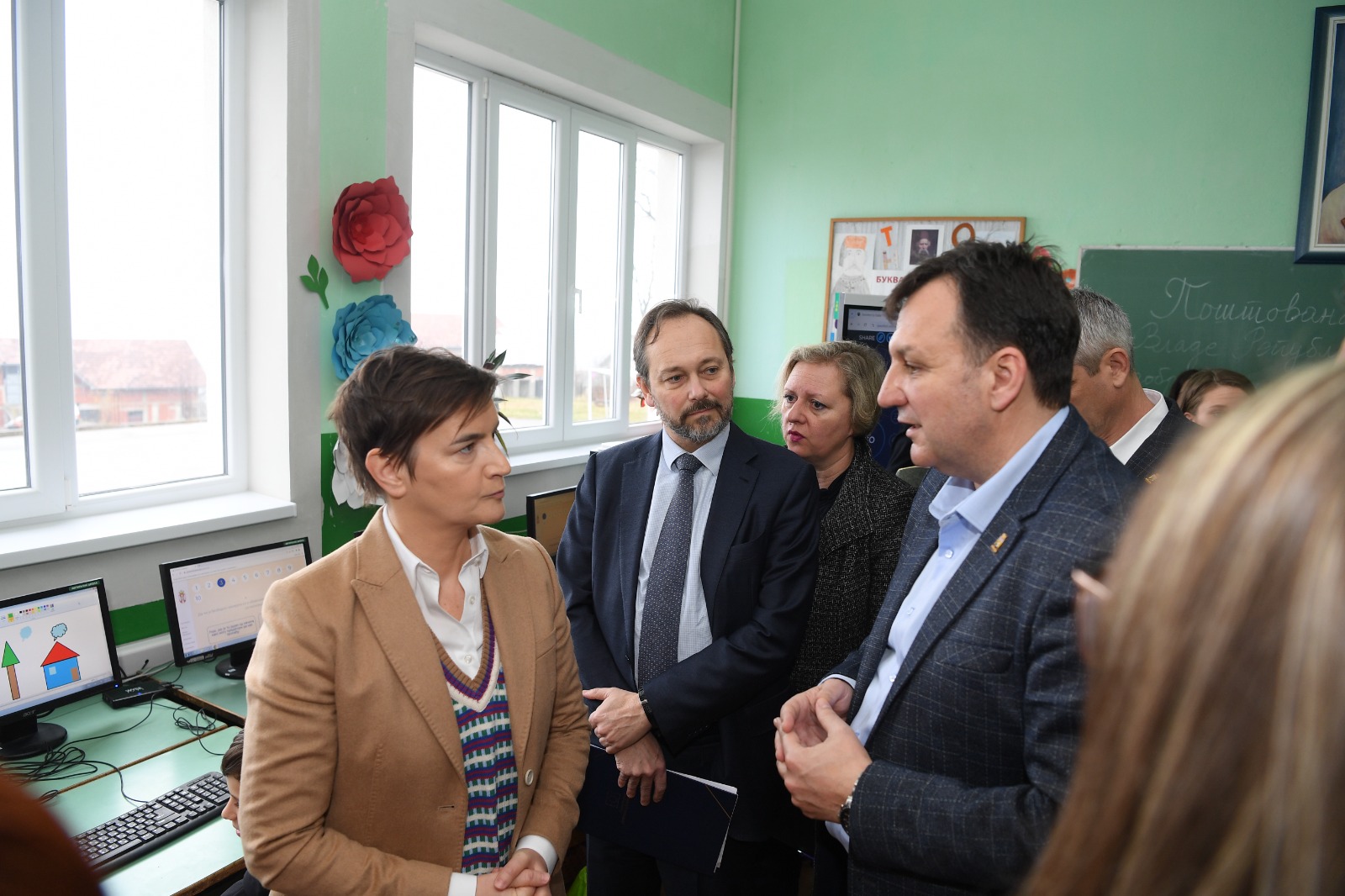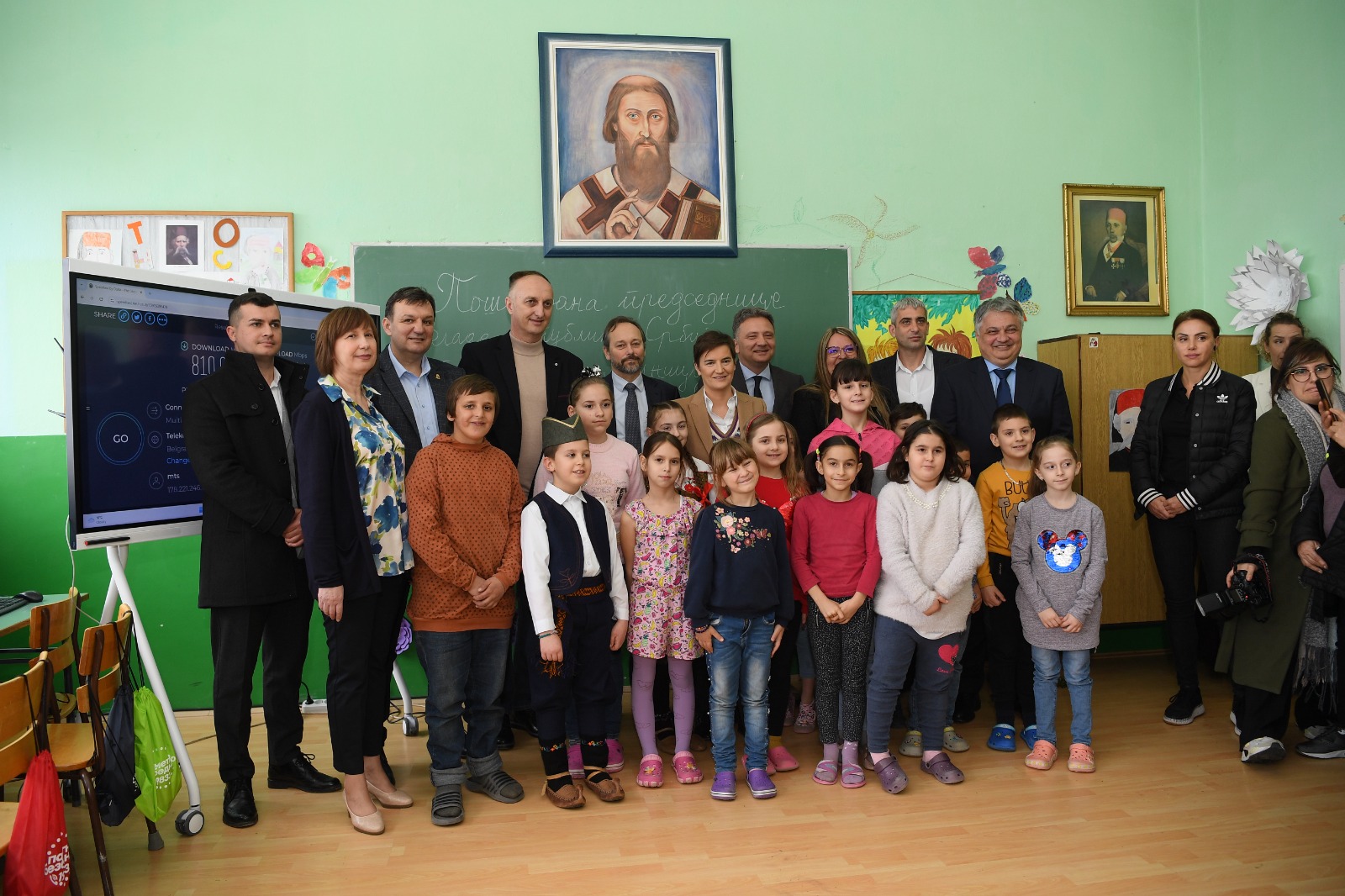Lomnica village near Despotovac is one of the rural communities in Serbia that received broadband internet access thanks to the cooperation of the European Union, Serbia and European Bank for Reconstruction and Development.
Serbian Prime Minister Ana Brnabic, EU Ambassador to Serbia Emanuele Giaufret, Minister for Information and Telecommunication Mihajlo Jovanovic and President of Despotovac Municipality Zlatko Marjanovic visited the elementary school in this village today to see first-hand the positive effect access to broadband internet will have on education and every day life.
“We are here today to showcase what the EU does for the citizens of Lomnica and beyond. We will provide high speed internet not only here but to altogether 600 settlements around Serbia. Digital access helps children and teachers learn through modern technologies and interactive content. Digital education should be seen as a tool to the goal of raising the quality and inclusiveness of education: to help overcome any potential learning gaps and barriers, to help diversify teaching methods and enable students to express different learning styles”, said Ambassador Giaufret.

“If, in addition to roads, highways, expressways, regional local roads, which are always an absolute priority for all citizens and the economy, we do not build digital roads today, which means introducing fast and high-quality Internet, then we cannot expect that young people will remain they live in villages, towns, local communities where they do not have access to fast and quality internet. So it’s guaranteed that they will move, and we don’t want that. That is why this project is in the first place, a project for even regional development. Because in addition to physical roads, digital roads in the 21st century, fast and high-quality Internet, reliable Internet mean that people will stay in the places where they were born”, said Prime Minister Brnabic.
The project activities aim is to enable schools and 128.000 households in rural communities’ access to broadband internet. These activities are financed through EU grants worth around EUR36 million, EBRD loan of EUR118 million and a contribution from the Republic of Serbia.

Support to rural broadband infrastructure development will be split in 3 phases. It enables the deployment of broadband infrastructure and school connectivity in ‘white zones’ in rural areas. Schools will obtain fibre connectivity (1 Gbps+) while passed-by settlements and households get access to the networks.
The EU supports the Digital Agenda of Serbia, in line with the Western Balkans Digital Agenda and the Berlin Process goals, guided by our operational blueprints for WB digital transformation – the Economic and Investment Plan for the Western Balkans, the Common Regional Market, as well as most recently the New Growth Plan Facility and the Reform Agenda, to improve citizen’s access to digital goods and services and boost Serbia’s competitiveness outlook.




